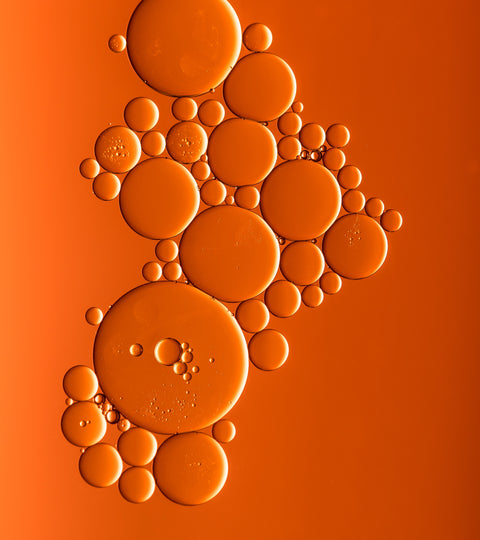Hemp Oil vs. CBD Oil: Unraveling the Differences and Benefits
Table of Contents
- Hemp Oil - The Nutrient-Packed Elixir
- Nutritional Benefits of Hemp Oil
- Hemp Oil in Skincare
- The Source and Composition of CBD Oil
- Potential Therapeutic Properties of CBD Oil
- CBD Oil for Pain Management
- CBD Oil for Anxiety and Stress Relief
- CBD Oil for Sleep Improvement
- Hemp Oil vs. CBD Oil: Unraveling the Confusion
- The Importance of Understanding the Distinction
- Considerations for Hemp Oil Usage
- Considerations for CBD Oil Usage
Introduction:
The booming popularity of hemp and CBD products has brought two seemingly similar oils into the spotlight: hemp oil and CBD oil. While these oils share some characteristics, they are distinct in terms of their composition, benefits, and uses. In this editorial article, we'll delve into the differences between hemp oil and CBD oil, exploring their unique properties and the potential benefits they offer.
Hemp Oil - The Nutrient-Packed Elixir:
Hemp oil, derived from the seeds of the hemp plant, is a nutrient-rich elixir that has been used for centuries in various cultures for its health benefits. Packed with essential fatty acids, vitamins, and minerals, hemp oil has become a popular choice in cooking, skincare, and overall wellness routines. It is known for its abundance of omega-3 and omega-6 fatty acids, which are essential for maintaining heart health and supporting brain function.

Hemp oil is commonly used in cooking as a healthy alternative to other oils. Its nutty flavor adds a delightful twist to salads, smoothies, and dressings. Moreover, hemp oil can be found in cosmetic products due to its moisturizing and skin-nourishing properties.
CBD Oil - The Therapeutic Wonder
On the other hand, CBD oil, short for cannabidiol oil, is derived from the flowers, leaves, and stalks of the hemp plant, not the seeds. CBD is one of the many cannabinoids found in hemp, known for its potential therapeutic properties. Unlike its cousin THC (tetrahydrocannabinol), CBD is non-psychoactive, which means it does not induce a "high" effect.

CBD oil has garnered significant attention for its potential to alleviate various health issues. Research suggests that CBD may be effective in managing pain, reducing anxiety and stress, improving sleep quality, and even supporting the treatment of epilepsy. Many people have embraced CBD oil as a natural alternative for promoting overall well-being and addressing specific health concerns.
Hemp Oil vs. CBD Oil: Unraveling the Confusion
The most common confusion arises from the terms "hemp oil" and "CBD oil" being used interchangeably. As we have seen, the primary distinction lies in their sources and components. Hemp oil is extracted from the seeds, while CBD oil is derived from the entire hemp plant or just the colas of the plant.

It is crucial for consumers to understand this distinction to make informed choices when purchasing these products. If you're seeking nutritional benefits and a flavorful addition to your meals, hemp oil is the way to go. However, for potential therapeutic effects, CBD oil holds more promise.
Choosing the Right Oil for Your Needs
When deciding between hemp oil and CBD oil, it's essential to consider your specific goals and requirements. If you are looking to enhance your diet with essential nutrients and promote healthy skin, hemp oil might be the better fit. On the other hand, if you're seeking relief from stress, anxiety, or chronic pain, CBD oil could offer the support you need.

FAQs
What is the difference between hemp oil and CBD oil?- Hemp oil is extracted from hemp seeds and is rich in essential fatty acids and other nutrients. On the other hand, CBD oil is derived from the flowers, leaves, and stalks of the hemp plant that contains cannabidiol (CBD), a non-psychoactive compound known for its potential therapeutic properties.
- No, hemp oil does not contain significant levels of CBD or THC, the psychoactive compound in cannabis. It does not have mind-altering effects and will not get you high.
- Hemp oil is a nutritional powerhouse, containing omega-3 and omega-6 fatty acids in the ideal ratio for human health. It also provides vitamins, minerals, and antioxidants that support heart health and overall well-being.
- CBD oil has gained attention for its potential to manage pain, reduce anxiety and stress, improve sleep quality, and potentially aid in treating certain medical conditions, such as epilepsy.
- Absolutely! Hemp oil's nutty flavor makes it a delicious and healthy addition to salads, smoothies, dressings, and various culinary creations.
- The legality of CBD oil varies depending on the country and region. In many places, CBD oil derived from hemp with low THC content is legal, but it's essential to check your local regulations.
- CBD is generally well-tolerated, but some individuals may experience mild side effects like dry mouth, drowsiness, or changes in appetite. It's advisable to start with a low dosage and consult a healthcare professional if you have concerns.
- Yes, CBD oil's anti-inflammatory and moisturizing properties make it a popular ingredient in skincare products like creams, lotions, and serums.
- If you're looking to boost your nutrition and promote healthy skin, hemp oil is a great choice. For potential therapeutic effects, such as pain relief or anxiety reduction, CBD oil may be more suitable.
- When purchasing hemp or CBD oil, look for reputable brands that provide third-party lab testing, ensuring the product's purity, potency, and safety.
*Remember to consult with a healthcare professional before starting any new supplement or wellness routine, especially if you have underlying health conditions or are taking medications.
Conclusion:
In the world of hemp and CBD, both hemp oil and CBD oil hold valuable roles, catering to different needs and preferences. Hemp oil shines as a nutritional powerhouse, while CBD oil offers potential therapeutic benefits without the intoxicating effects of THC. Understanding the differences between these oils empowers consumers to make well-informed choices that align with their health and wellness goals. Whether you opt for hemp oil or CBD oil, incorporating these natural wonders into your daily routine can lead to a happier and healthier lifestyle.
Dont forget to check out our CBD Jotter or our Patient Journal to help facilitate your adventure through guided entry pages and graphics designed to help you document the flavors, effects, and potency of your cannabis experiences.


